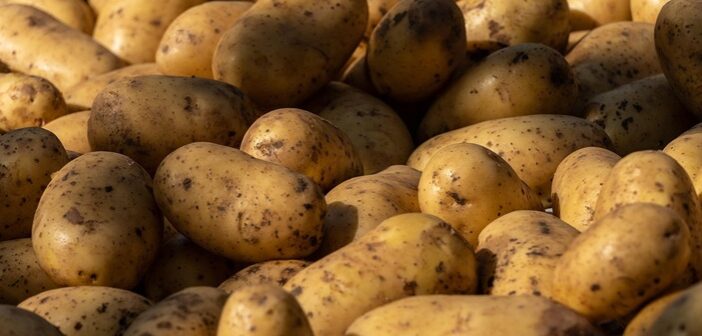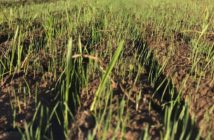The DeCyst project is progressing to enhance PCN control through further evaluation of trap crops.
Following success with solanaceous trap crops (STCs), the consortium of project collaborators including the UK Agri-Tech Centre, Produce Solutions, Harper Adams University, and VCS Potatoes, alongside several progressive potato growers, will look more closely at the three species involved – solanum sisymbriifolium (DeCyst-Prickly), solanum scabrum (DeCyst-Broadleaf), and solanum chenopodioides (DeCyst-Podium).
Trap cropping, a technique involving the strategic planting of certain crops to divert PCN away from potatoes, has gained attention as a potential solution.
By stimulating PCN to hatch at a different point in the rotation, mature female nematodes are prevented from completing their lifecycle, thereby reducing their impact on potato crops.
Dr Matthew Back, reader in nematology at Harper Adams University, says: “PCN is the most prevalent potato pest in the UK.
“High populations of PCN can cause yield losses of up to 80% in susceptible cultivars, with an estimated annual cost to the Great British potato industry of £31 million each year. Moreover, PCN threatens the continued production of seed due to its continued spread in Scotland.
“As crop protection chemistry such as nematicides are revoked, and control measures limited, growers have to investigate alternative methods such as trap crops, to ensure a viable future for potatoes within their rotations.”
Dr Alex McCormack, innovation lead – agronomy, at UK Agri-Tech Centre, adds: “It’s been a great few years working with the DeCyst consortium advancing our knowledge and understanding of how to get the best out of STCs.
“Going forward it’s now a question of how we can continue to build on this project’s successes, alongside looking at other complementary tools to manage pests and diseases like PCN.”
The consortium has produced a video. To view visit; https://bit.ly/decystproject




